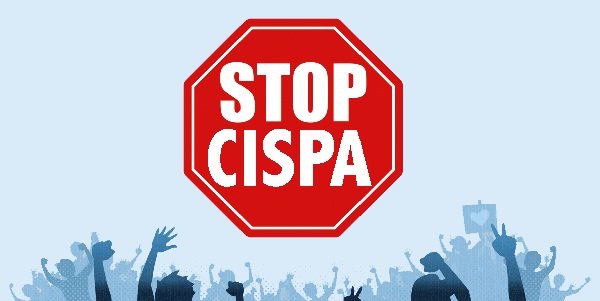
Right now, the US is poised to pass a new law that would permit US agents to spy on almost everything we do online. But we can stop them before the final vote.
Companies that we trust with our personal information, like Microsoft and Facebook, are key supporters of this bill that lets corporations share all user activity and content with US government agents without needing a warrant in the name of cyber-security — nullifying privacy guarantees for almost everyone around the world, no matter where we live and surf online.
If enough of us speak out, we can stop companies that profit from our business from supporting cyber-spying. Sign the petition to these key net corporations now:
http://www.avaaz.org/en/stop_cispa_corporate_global/
The Cyber Intelligence Sharing and Protection Act (CISPA) would allow companies doing business in the US to collect exact records of all of our online activities and hand them over to the US government, without ever notifying us that we are being watched. No warrant, no legal cause and no due process required. To make matters worse, the bill provides the government and corporations with blanket immunity to protect them from being sued for violation of privacy and other illegal actions.
The bill’s supporters claim that consumer information will be protected, but the reality is that huge loopholes would make everything we do online fair game — and nowadays, from banking to shopping, our private information is all stored on the Internet.
CISPA is being moved forward in Congress and will be voted upon in days. Let’s raise a massive outcry to stop corporations from giving the US a blank check to monitor our every move. Click below to take action:
http://www.avaaz.org/en/stop_cispa_corporate_global/
This year, we helped stop SOPA, PIPA and ACTA — all dire threats to the Internet. Now, let’s block CISPA and end the US government attack on our Internet.
WIth hope and determination,
Dalia, Allison, Emma, Ricken, Rewan, Andrew, Wen-Hua, and the rest of the Avaaz team
More information:
CISPA: The internet finds a new enemy (Global Post)
http://www.globalpost.com/dispatches/globalpost-blogs/the-grid/cispa-the-internet-finds-new-enemy-sopa
CISPA protests begin amid key changes to legislation (Los Angeles Times)
http://www.latimes.com/news/politics/la-pn-cispa-protests-begin-amid-key-changes-to-legislation-20120416,0,5314596.story
Cybersecurity Bill FAQ: The Disturbing Privacy Dangers in CISPA and How To Stop It (Electronic Frontier Foundation)
https://www.eff.org/deeplinks/2012/04/cybersecurity-bill-faq-disturbing-privacy-dangers-cispa-and-how-you-stop-it
New CISPA Draft Narrows Cybersecurity Language as Protests Loom (Mashable)
http://news.yahoo.com/cispa-draft-narrows-cybersecurity-language-protests-loom-134202431.html
Democrat Harry Reid, the U.S. Senate Majority Leader, announced he will postpone a vote on a contested anti-online piracy bill.
This decision follows protests by online encyclopaedia Wikipedia, and thousands of other websites, which went “dark” in protest for 24 hours earlier this week.
“In light of recent events, I have decided to postpone Tuesday’s vote on the PROTECT IP Act,” Harry Reid said in a statement.
The Senate was due to hold a procedural vote on the bill on Tuesday.
Two versions of anti-piracy legislation are pending in Congress: the Protect IP Act (PIPA) before the Senate and Stop Online Piracy Act (SOPA), due to be voted on by the House of Representatives.
In the wake of Wednesday’s protest, and amid a barrage of emails and phone calls from web users to their local congressmen, some lawmakers have shown signs of retreating from the bill.
Of about 40 co-sponsors for the PIPA bill, a handful withdrew their support on Wednesday, as thousands of websites participated in a co-ordinate online protest.
More than seven million people signed a petition on Google saying that passage of the legislation would result in censoring the web and impose a regulatory burden on businesses.
It is not clear whether the SOPA bill will also be stalled.
After yesterday “blackout” protests on thousands of internet sites, eight US lawmakers have announced they have withdrawn their support for anti-piracy laws.
Two of the bill’s co-sponsors, Marco Rubio from Florida and Roy Blunt from Missouri, are among those backing away.
Online encyclopedia Wikipedia and blog service WordPress are among the highest profile sites to block their content.
The Motion Picture Association of America (MPAA) has branded the protests as “irresponsible” and a “stunt”.
The MPAA, Hollywood’s primary advocate in Washington and a key supporter of the legislation, is led by former Connecticut Democratic Senator Chris Dodd.
Both bills focus on responding to online piracy, specifically illegal copies of films and other media.
The bills would also outlaw sites from containing information about how to access blocked sites.
With Marco Rubio and Roy Blunt withdrawing their support, the Senate bill – Protect Intellectual Property Act (PIPA) – that had looked likely to pass, now appears to be in trouble.
Marco Rubio is a rising star in the Republican Party, and is often suggested as a viable vice-presidential choice for this year’s Republican presidential nominee.
Republicans and Democrats were among the lawmakers rowing back on Wednesday.

Online encyclopedia Wikipedia and blog service WordPress are among the highest profile sites to block their content as a protest against anti-piracy laws in US
The list of senators no longer backing PIPA includes Marco Rubio and Roy Blunt, and Utah Senator Orrin Hatch, all Republicans, as well as Democrat Ben Cardin of Maryland.
In the House of Representatives, Republicans Ben Quayle of Arizona, Lee Terry of Nebraska and Dennis Ross of Florida said they were no longer supporting the Stop Online Piracy Act (SOPA), joining Pennsylvania Democrat Tim Holden.
Dennis Ross tweeted that he was no longer supporting SOPA, because as “a true free marketer, I want IP protected correctly”.
In a Facebook posting, Marco Rubio said he and fellow Senators “heard legitimate concerns about the impact the bill could have on access to the internet”.
Senator Orrin Hatch called PIPA “not ready for prime-time” and said he would remove himself from the bill’s list of sponsors.
The US news website Politico estimated that 7,000 sites were involved by early Wednesday morning.
Google did not shut down its main search but is showing solidarity by placing a black box over its logo when US-based users visit its site.
Online marketplace Craigslist asks site visitors to contact their representatives in Congress before moving on to the main site.
Visitors to Wikipedia’s English-language site were greeted by a dark page with white text which said: “Imagine a world without free knowledge… The US Congress is considering legislation that could fatally damage the free and open internet. For 24 hours, to raise awareness, we are blacking out Wikipedia.”
If users tried to access its other pages via search sites, the text briefly flashed up before being replaced by the protest page. However, people were sharing workarounds to disable the redirect.
When the protest ended at 05:00 GMT on Thursday, Wikipedia carried the message: “Thank you for protecting Wikipedia”.
WordPress’s homepage displayed a video which claimed that SOPA “breaks the internet” and asked users to add their name to a petition asking Congress to stop the bill.
“The authors of the legislation don’t seem to really understand how the internet works,” said Matt Mullenweg, the site’s co-founder.
Other net firms that have criticized the legislation decided not to take part in the blackout.
Twitter’s founder, Dick Costolo, tweeted that it would be “foolish” to take the service offline.
The moves were described as an “abuse of power” by one of the highest-profile supporters of the anti-piracy bills.
“It is an irresponsible response and a disservice to people who rely on them for information,” Senator Chris Dodd said in a statement, calling the actions taken by the high-profile websites “yet another gimmick”.
In addition to the MPAA’s support for the legislation, the US Chamber of Commerce said claims against the legislation had been overstated
“[The sponsors] announced they would roll back the provisions of these bills designed to block foreign criminal websites, striking a major conciliatory note with those who raised legitimate concerns,” said Steve Tepp, chief intellectual property counsel at the chamber’s Global Intellectual Property Center.
“What remains are two pieces of legislation that are narrowly tailored and commercially reasonable for taking an effective swipe at the business models of rogue sites.”
The proposed legislation would allow the Department of Justice and content owners to seek court orders against any site accused of “enabling or facilitating” piracy.
SOPA also calls for search engines to remove infringing sites from their results. PIPA does not include this provision.
Google posted a blog on the subject claiming that the bills would not stop piracy.
“There are better ways to address piracy than to ask US companies to censor the internet. The foreign rogue sites are in it for the money, and we believe the best way to shut them down is to cut off their sources of funding.”
The events coincided with news that the US House of Representatives plans to resume work on SOPA next month. The Senate is expected to start voting on 24 January on how to proceed on PIPA.
Even if Congress approves the bills, President Barack Obama may decide to veto them.
The White House issued a statement at the weekend saying that “we will not support legislation that reduces freedom of expression, increases cybersecurity risk, or undermines the dynamic, innovative global internet”.


